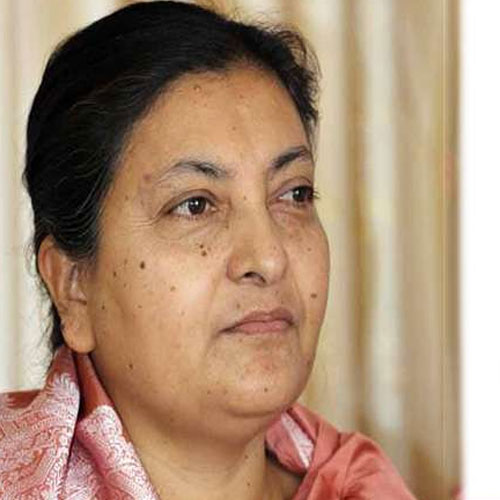 By Shristi Kafle
By Shristi Kafle
KATHMANDU, June 27 (Xinhua) — Fourteen years ago when Aanik Rana Magar revealed her sexual orientation to be that of a female transgender, many raised their eyebrows in cynicism.
The conservative society in her home town in western Nepal found it tough to accept that Aanik whom they known as a male had a female body and instincts.
It was in 2003 when Aanik became a member of the Blue Diamond Society, an organization working for the rights of Lesbian, Gay, Bisexual, Transgender and Inter-sexual (LGBTI) and revealed her real identity.
It has only been two years since 35-year-old Aanik gained both citizenship and passport under the “others” or “O” category. To the surprise of many, she has become the first transgender woman to run in the local level elections that took place in the country after a 20-year hiatus.
Aanik is a candidate for the chairperson in ward 8 of the Tilotama municipality, located in Ruapandehi district from the former Prime Minister Baburam Bhattarai-led Naya Shakti Nepal party.
“I believe my nomination can bring some positive changes in the outlook of society towards the LGBTI community. It can also work to encourage people who have been hiding their identity out of social fear,” Aanik told Xinhua in a recent phone interview.
Aanik, who has been busy for weeks in campaigning for the elections, said she received positive response and wishes from the people in her community.
“I may win, I may lose, and that’s not a big deal. For me, my candidacy itself is a victory against society,” Aanik said confidently.
Being an only child and having lost both her father and mother decades back, Aanik thinks Nepal still has a lot to do regarding the implementation of rights provided to sexual minorities.
Nepal is regarded as one of the most progressive countries in Asia to recognize LGBTI rights as the country’s constitution prohibits discrimination against sexual minorities and has special legal provisions for their protection, empowerment and advancement.
Nepal is also the first country in South Asia to ensure LGBTI rights in the constitution. Nepal has already given recognition to a third gender category on its citizenship card and passport. However, there are many complaints that the implementation has been poor.
“To change from male to the ‘others’ category as a citizen and for my passport, I even had to file a writ with the Supreme Court. The process is tough at the grass root level where the government officers are not yet unaware about the new provisions. I want to make things easier for my fellow friends,” Aanik told Xinhua.
Earlier, in the first phase of elections, a similar problem occurred when third gender Badri Pun was barred from contesting in the poll, with officials citing the gender identity problem in the official documents.
Female-to-male transgender Pun was supposed to represent a rural municipality of Myagdi district for the CPN-UML party. However, the District Election Office rejected his candidacy as his citizenship failed to present that he was a transgender male.
If Aanik could garner enough votes to win the local polls, she wants to improve the government system for sexual minorities, who are failing to enjoy access to opportunities and have been compelled to live a dejected life.
According to the Election Commission, there are 143 people registered as third gender on the voters list.
The local elections have been historic not just for empowering local entities with powers after two decades, but also because it has been inclusive for women, third gender people, the marginalized and Dalit community.
To ensure gender equity in polls, the Local Level Election Act 2017 stated that it is mandatory for political parties to field female candidates for either two of the top executive posts and at least 40 percent ward membership.
Moreover, ward level posts are dedicated to women, with one post to be filled from the marginalized Dalit community. This provision has considerably raised the enthusiasm of Nepali women across the country.
This provision has given women, who are often suppressed under patriarchal notions, a chance to run for the government offices as men and prove their capabilities. In the first phase of the local elections held in 383 local levels across three provinces on May 14, the female participation rate stood at 39 percent.
“The quota for women and Dalits in local elections is really welcoming as it is a positive step towards a more inclusive society. But it is sad that many political parties are not following it.” Hisila Yami, a former minister and leader of Naya Shakti Nepal, told Xinhua.
From the perspective of the LGBTI community, Yami is of the view that Nepali laws are definitely great but need a strong mechanism for implementation.

